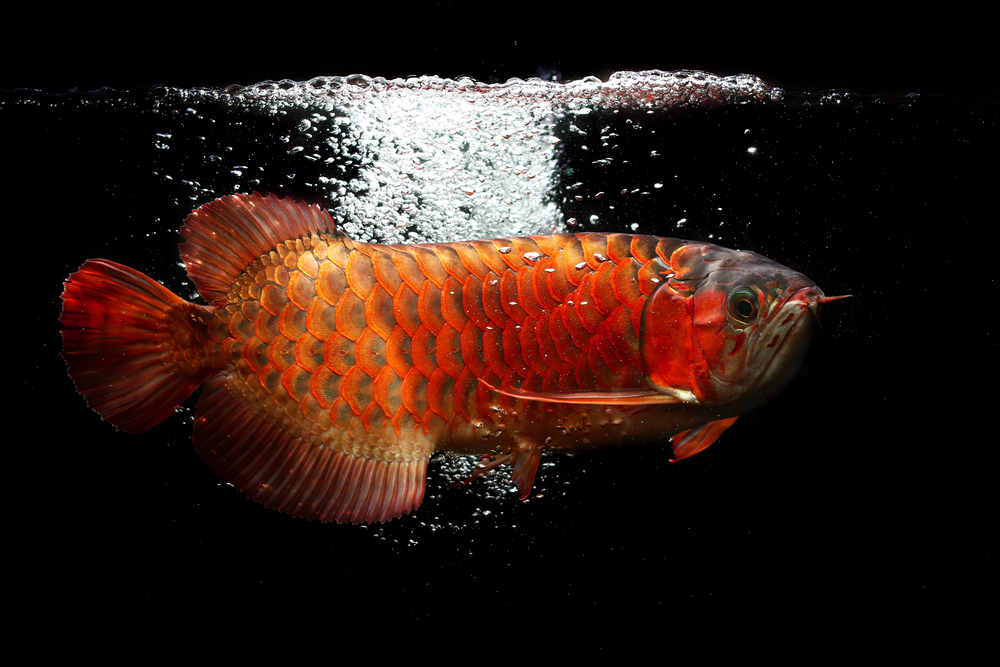Share This Article
By Sahar Adatia and Jimmy Singh.
If you’ve ever watched an episode of Border Security, you’ll be all too familiar with the myriad of weird and wonderful things people have endeavoured to smuggle into Australian airports.
From importing border-controlled drugs to tropical fruits, herbal remedies and even a human corpse, people try every trick in the book thinking they can outsmart customs officers and traffic forbidden items into the country.
In what can only be described as one of the most bizarre cases to date, last week, the Australian Border Force (ABF) confirmed that a 34-year-old Vietnamese man was arrested at Adelaide Airport after being caught allegedly trying to import a rare and expensive live fish that was hanging in a bag around his neck.
The man was selected for a baggage examination after arriving in Adelaide on a flight from Malaysia.
Upon the routine frisk search, the man surrendered the bag containing the fish.
He was then arrested by ABF officers.
Fish Identified as Endangered “Fully Red Asian Arowana”
In a statement released by the ABF, it was advised that the fish had been referred to the Department of Agriculture and Water Resources for identification and to assess the biosecurity risk.
The fish was determined to be an endangered “Fully Red Asian Arowana”, the trade of which is controlled under the Convention on International Trade of Endangered Species, to which Australia is a signatory.
The Fully Red Asian Arowana fish, commonly referred to as a dragon fish, is one of the most popular fish among Asian Arowanas. This is largely because of their auspicious colour.
The Red Arowana can grow up to 90 centimetres in length and are incredibly rare and expensive.
Prices vary, however one of the fish is rumoured to have sold for up to US$300,000 several years ago.
The Red Arowana is believed to bring prosperity and wealth to the owner.
Red Arowana Humanely Euthanised
Sadly, the endangered fish had to be put down.
“The fish had to be humanely euthanised, as illegal imports of exotic animals can introduce serious pests and diseases that pose a significant biosecurity risk to Australia,” the ABF advised.
ABF to Disrupt and Deter Illegal Trade of Animals
Speaking of the incident, ABF Chief Superintendent Brett Liebich said the agency would do everything in its means to disrupt and discourage the illegal trade of animals.
“The ABF is committed to stopping the trade in rare animals and protecting our delicate natural wildlife from the potentially devastating impact of foreign diseases and predators,” Superintendent Liebich said.
“The ABF takes the illegal wildlife trade seriously and we will continue to work collaboratively with our partners to detect, disrupt and deter illegal activity at our borders.”
The illegal wildlife trade and smuggling of animals is considered an act of cruelty and many do not survive the trip.
The ABF continues to work closely with international and domestic partners to do everything in its power to stop the illegal and inhumane trade.
Wildlife Trade and the Law
In Australia, the national environment law, known as the Environment Protection and Biodiversity Conservation Act 1999 (Clth), regulates the movements of animals, plants and products to and from Australia.
The Act helps to protect the environment from risks associated with the international movement of wildlife.
This regulation is also how Australia meets its obligations under CITES – an international agreement to regulate wildlife trade between countries.
When it comes to protecting the environment, members of the public play a crucial role, particularly in reporting suspected breaches.
The Department of the Environment and Energy encourages members of the public to report suspected breaches of international wildlife laws. It also values the information and support it receives from the community.
Seizing Animals Under the Environment Protection and Biodiversity Conservation Act 1999
The Environment Protection and Biodiversity Conservation Act 1999 authorises the AFT and Customs officers to seize animals, plants and products that may have been brought to Australia illegally.
The penalties for wildlife trafficking are severe. They include fines and imprisonment.
A Guide on the Law Concerning Illegal Wildlife Trade in Australia
Under Australian law, the maximum penalty for wildlife trade offences is 10 years’ imprisonment and/or a fine of up to $210,000. This is reflected under section 303EK Environment Protection and Biodiversity Conservation Act 1999.
A person will be guilty of this if he/she imports a specimen and if that specimen imported is a regulated live specimen.
Exceptions to this is if the specimen is a specimen outlined in Part of the of list referred to in section 303EB if the specimen is imported with a valid permit issued under section 303CG, 303GB, 303EN or 303GC. (section 303EK(2)).
Further exception to this is if the specimen was imported with a valid permit issued under section 303GD. (section 303EK(3)).
A regulated live specimen includes a live animal or plant which does not fall within the list outlined in section 303EB.
Importing illegal things into Australia is taken very seriously. If faced with an importing charge, urgent advice is critical.
We are available 24/7 with criminal defence lawyers in Parramatta, Sydney City and 6 other office locations. Contact us on (02) 8606 2218.









